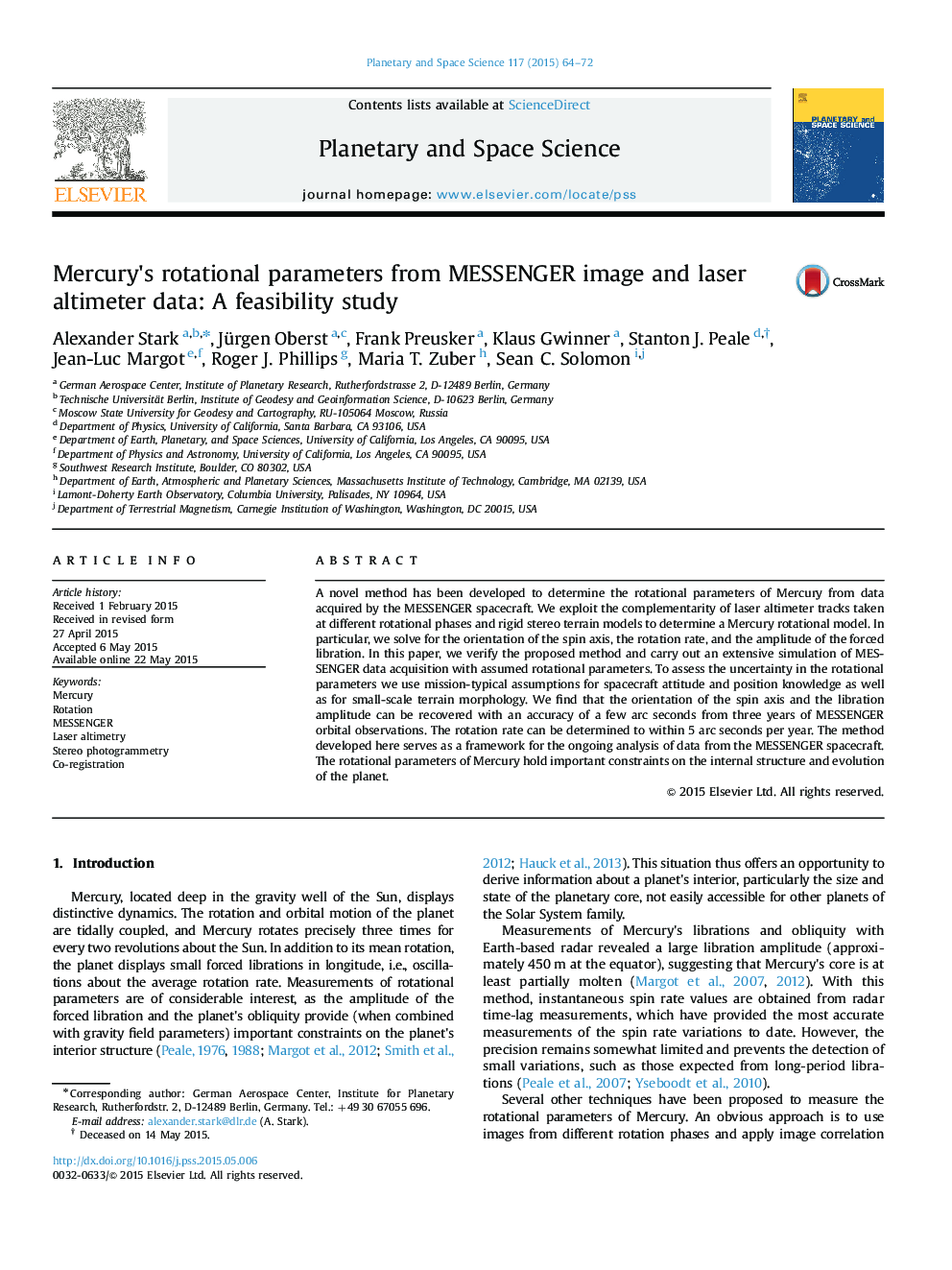| Article ID | Journal | Published Year | Pages | File Type |
|---|---|---|---|---|
| 8143023 | Planetary and Space Science | 2015 | 9 Pages |
Abstract
A novel method has been developed to determine the rotational parameters of Mercury from data acquired by the MESSENGER spacecraft. We exploit the complementarity of laser altimeter tracks taken at different rotational phases and rigid stereo terrain models to determine a Mercury rotational model. In particular, we solve for the orientation of the spin axis, the rotation rate, and the amplitude of the forced libration. In this paper, we verify the proposed method and carry out an extensive simulation of MESSENGER data acquisition with assumed rotational parameters. To assess the uncertainty in the rotational parameters we use mission-typical assumptions for spacecraft attitude and position knowledge as well as for small-scale terrain morphology. We find that the orientation of the spin axis and the libration amplitude can be recovered with an accuracy of a few arc seconds from three years of MESSENGER orbital observations. The rotation rate can be determined to within 5 arc seconds per year. The method developed here serves as a framework for the ongoing analysis of data from the MESSENGER spacecraft. The rotational parameters of Mercury hold important constraints on the internal structure and evolution of the planet.
Related Topics
Physical Sciences and Engineering
Earth and Planetary Sciences
Geophysics
Authors
Alexander Stark, Jürgen Oberst, Frank Preusker, Klaus Gwinner, Stanton J. Peale, Jean-Luc Margot, Roger J. Phillips, Maria T. Zuber, Sean C. Solomon,
